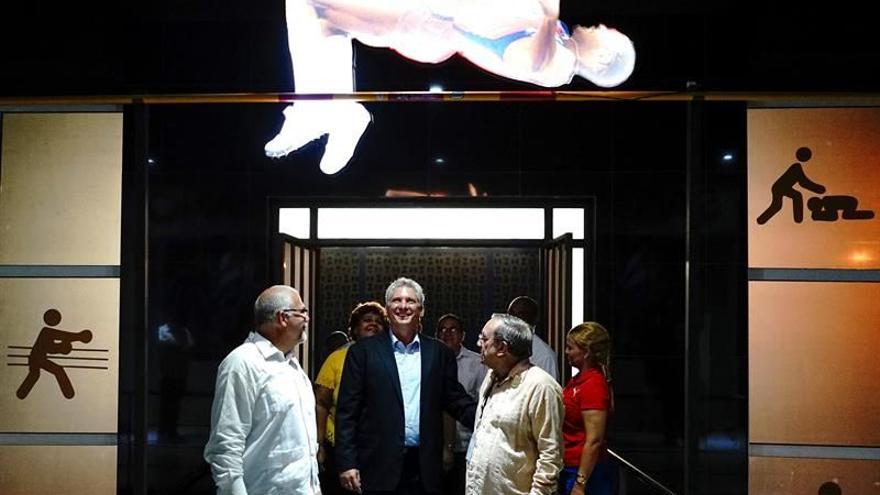
14ymedio, Havana, 14 June 2018 — In his speech this Friday during the inauguration of the Cuban Sports Hall, President Miguel Díaz-Canel spoke of the exodus of several of the best athletes in the country and attributed it to the “subversive provocation that imperialism tries to impose” with the intention of seeking a “loss of prestige” for Cuba, as well as the “lack of commitment” of the island’s athletes.
The new space located in Havana Sports City is dedicated to collecting the history of sport on the island and exhibits numerous photos along with trophies and medals won by national athletes.
The president said that the practice and development of sports has been “one of the achievements of the Cuban Revolution” and also “an expression of joy and a confirmation of revolutionary values and of patriotic and human values.”
He also said that in the world today sports has been converted into a form of “merchandise” in a scenario marked by “high administrative corruption” where “athletes are bought and sold.” In addition, he lamented the “nefarious scourge” of doping.
Díaz-Canel has declared that the Government will continue giving “priority” attention to the sport, “even in very complex conditions,” and that Cuba will win first place among the countries in the upcoming Central American and Caribbean Games in Barranquilla (Colombia), from July 19 to August 3.
The Cuban State strictly regulates the exercise of sports on the Island. Trained in technical education institutions where each discipline reaches a high level, and with a very low salaries paid by the National Institute of Sports, Physical Education and Recreation, Cuban athletes are presented as amateurs but in practice they live as professionals.
Driven by Fidel Castro, the Island’s plan for sports sought not only to promote exercise, but also to export the idea that the Antilles was a power in this area and could face the richest countries.
After the end of the subsidies from the Soviet Union at the beginning of the 1990s, a large part of the academic institutions and facilities for sport fell into disuse due to lack of maintenance. Poor living conditions, coupled with poor remuneration, led hundreds of athletes to escape from national teams at events and tours.
In 2013, the authorities gave the green light to hiring high-performance athletes from abroad, as long as it is managed through a company that assures the State a substantial part of the contract. The measure, applauded by a broad sector of Cuban sports, has not stopped the exodus. The most recent known case of an athlete leaving the national team was the Olympic boxing champion Robeisy Ramirez, who escaped during a training session in Mexico earlier this month.
___________________________
The 14ymedio team is committed to serious journalism that reflects the reality of deep Cuba. Thank you for joining us on this long road. We invite you to continue supporting us, but this time by becoming a member of 14ymedio. Together we can continue to transform journalism in Cuba.
